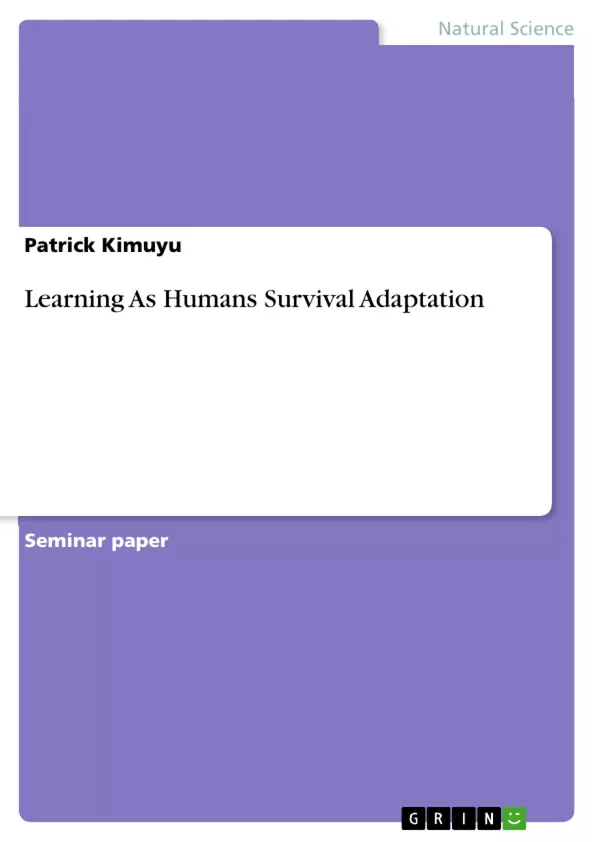The psychology of learning consists of two concepts: education and psychology. Educational psychology, therefore, is the application of pure science in education with the purpose of modifying and socializing the behavior of an individual. According to Mintz (2013), educational psychology is a description and explanation of the learning experience of a person from their birth to old age. It is that psychology branch dealing with learning and teaching. Krishna (2004) states that, the meaning of educational has been defined differently, but the notable definitions are by Stephen who defines educational psychology as the “systematic study of the educational growth and development of a child”. On the other hand, Judd (2009) describes educational psychology as “the science that explains the changes that take place in the individuals as they pass through the various stages of development”. In short, this is the science of learning.
Inhaltsverzeichnis (Table of Contents)
- Introduction
- Learning
- Types of Learning
- Learning Theories
- Stimulus-Response Theory with Reinforcement
- Trial and Error Theory by E.L Thorndike
- Operant conditioning by BF Skinner
- Stimulus-Response Theory without Reinforcement
- Classical Conditioning by Pavlov
- Factors Affecting Learning
- Maturation as a Learning Factor
- Attention and Perception
- Motivation Factor of Learning
- Conclusion
- References
Zielsetzung und Themenschwerpunkte (Objectives and Key Themes)
This text aims to provide an understanding of the psychology of learning, its key concepts, and the factors that influence it. The text also explores different types and theories of learning, emphasizing both the behavioral and cognitive perspectives.
- The psychology of learning and its connection to education
- Types of learning, including formal, informal, and non-formal, as well as individual and group learning
- Different learning theories, including behaviorist and cognitive approaches
- Factors that affect learning, such as maturation, attention, and motivation
- The importance of practical applications of learning theories in educational settings
Zusammenfassung der Kapitel (Chapter Summaries)
The introduction defines the scope of educational psychology and highlights its importance in understanding the learning process. It emphasizes the interplay of education and psychology, focusing on the application of psychological principles to improve learning outcomes.
The chapter on learning delves into the concept of learning as a process of change in behavior. It explores various types of learning, including formal, non-formal, and informal, and classifies them based on activity and the number of learners involved.
The chapter on learning theories discusses the various explanations for how learning occurs. It differentiates between cognitive, behavioral, and constructivist approaches, highlighting the contributions of each framework to understanding the learning process.
The chapter on Stimulus-Response theory with reinforcement focuses on the work of E.L Thorndike and BF Skinner. It outlines their contributions to understanding how reinforcement shapes behavior through trial and error and operant conditioning.
The chapter on Stimulus-Response theory without reinforcement explores the classical conditioning theory by Pavlov. It examines the formation of conditioned reflexes through the association of stimuli.
The chapter on factors affecting learning discusses key influences on the learning process, such as maturation, attention, and motivation. It analyzes how these factors contribute to individual differences in learning outcomes.
Schlüsselwörter (Keywords)
The main keywords and focus topics of this text include: educational psychology, learning process, behavior change, types of learning, learning theories, cognitive theories, behavioral theories, stimulus-response theory, reinforcement, classical conditioning, maturation, attention, motivation, and practical applications.
- Arbeit zitieren
- Patrick Kimuyu (Autor:in), 2018, Learning As Humans Survival Adaptation, München, GRIN Verlag, https://www.hausarbeiten.de/document/431375


